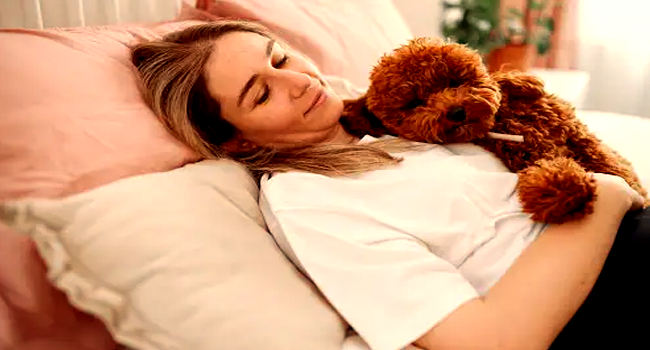Introduction:
Sleep is essential for physical health, intellectual well-being, and extraordinary lifestyles. Yet, many people suffer from horrible sleep issues because of elements along with pressure, abnormal schedules, and dangerous sleep behavior.
Sleep hygiene refers to a fixed of practices and behaviors that sell healthful sleep patterns and decorate sleep first-class.
1. Understanding Sleep Hygiene:
Sleep hygiene encompasses a variety of factors that could affect the quality of our sleep, including our sleep surroundings, daily workout routines, and lifestyle behavior. By addressing those factors and adopting wholesome sleep practices, we can optimize our sleep and awaken feeling refreshed and rejuvenated.
2. Critical Components of Sleep Hygiene:
Sleep Environment: Create a snug and conducive sleep environment by making sure your bedroom is quiet, dark, and funky. Invest in a snug bed and pillows, and consider using blackout curtains or white noise machines to block out distractions.
Sleep Schedule: Establish a daily sleep time desk by going to bed and waking up at the same time every day, even on weekends. This will enable you to modify your body’s internal clock and promote better sleep.
Sign on your frame that it’s time to wind down and put together for sleep. This also can encompass activities such as analyzing, taking a heat bathtub, or practicing rest strategies like deep breathing or meditation.
Limit Stimulants: Avoid stimulants, including caffeine, nicotine, and alcohol, near bedtime, as they may interfere collectively with your ability to doze off and stay asleep.
Technology Use: Limit display time and exposure to blue mild from digital devices on the side of smartphones, tablets, and PC structures, mainly inside the hour primary as a good deal as bedtime. Blue light can disrupt your body’s herbal sleep-wake cycle and make it more challenging to doze off.
3. Common Sleep Disruptors:
Stress and Anxiety: Stressful lifestyle events, artwork-related strain, and anxiety can intrude together with your ability to relax and doze off—practice stress manipulation techniques such as mindfulness, meditation, or journaling to calm your mind before bedtime.
Poor Sleep Habits: Irregular sleep schedules, inconsistent bedtime workout routines, and excessive napping at some stage can disrupt your herbal sleep-wake cycle and bring about first-rate harmful sleep. Healthy sleep behavior and a daily routine can improve sleep quality over time.
Environmental Factors: Noise, moderate, and temperature fluctuations in your sleep surroundings can disrupt your sleep style and make it more difficult to fall asleep and stay asleep. Take steps to limit those disturbances by using earplugs, blackout curtains, and adjusting the thermostat to create a predominant sleep environment.
Medical Conditions: Certain scientific situations, which include sleep apnea, insomnia, restless legs syndrome, and continual pain, can intervene in conjunction with your capacity to get restful sleep. If you discover a snooze problem, consult a healthcare expert for the correct evaluation and remedy.
4. Practical Strategies for Improving Sleep Quality:
Create a chilled bedtime routine to sign up your frame and say it is time to wind down and prepare for sleep.
Avoid stimulants alongside caffeine, nicotine, and alcohol near bedtime, as they could intrude on your capacity to doze off.
Limit screen time and publicity to moderate from virtual gadgets within the hour main as much as bedtime.
Practice pressure manipulation strategies, such as mindfulness, meditation, or deep respiration physical activities, to calm your thoughts before bedtime.
If you’re struggling with chronic sleep problems, talk with a healthcare expert for proper evaluation and treatment.
Conclusion:
Sleep hygiene is crucial in promoting healthy sleep styles and improving sleep exquisite. Adopting simple but powerful sleep practices and addressing commonplace sleep disruptors may optimize your sleep surroundings, establish a regular sleep routine, and enhance your general well-being.
Prioritize sleep hygiene as an essential detail of your self-care habit and gain the blessings of restful and rejuvenating sleep.
FAQs
1. What is sleep hygiene?
Sleep hygiene refers to a hard and fast practice and conduct that promotes healthful sleep styles and enhances sleep fine. These practices embody various factors, including the sleep environment, bedtime exercises, and lifestyle behavior that affect our capacity to get restful sleep.
2. Why is sleep hygiene critical?
Sleep hygiene is crucial as it plays an essential role in our physical fitness, mental well-being, and conventional quality of life. By adopting healthy sleep practices and addressing everyday sleep disruptors, we will optimize our sleep, awaken feeling refreshed, and function at our fantastic best at a few degrees in the day.
3. What are some unusual sleep disruptors?
Everyday sleep disruptors consist of pressure and anxiety, negative sleep behavior, which incorporates irregular sleep schedules and inconsistent bedtime physical games, environmental elements like noise and slight, and scientific conditions alongside sleep apnea and insomnia.
4. How can I beautify my sleep splendidly?
Making a calming bedtime habitual, avoiding stimulants like caffeine and alcohol near bedtime, creating a snug sleep environment, proscribing screen time earlier than a bed, and practicing stress management techniques.
5. What are some examples of strain control strategies?
Stress management techniques include mindfulness meditation, deep breathing exercises, modern muscle rest, yoga, journaling, and engaging in calming activities such as analyzing or taking a warm bath.
6. How long does it take to see improvements in sleep best with sleep hygiene practices?
The timeline for seeing improvements in sleep quality with sleep hygiene practices can vary depending on individual factors and the severity of sleep troubles. Some people may additionally notice improvements within days or possibly weeks, while others may require more time and consistency in their sleep hygiene practices.
7. When do I have to seek out professional help for sleep issues?
You should consider seeking professional help for sleep problems if you experience persistent difficulties falling asleep or staying asleep if you often awaken feeling tired or unrefreshed despite getting enough sleep, or if your sleep problems notably impact your everyday functioning and quality of life. A healthcare expert can examine and analyze your symptoms properly and recommend suitable treatment options.

